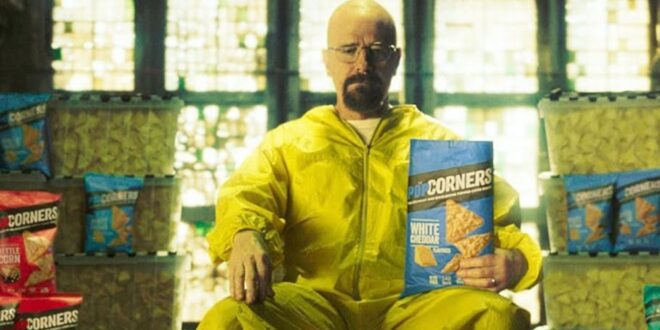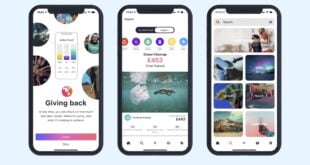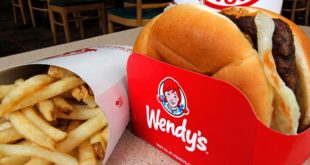The Super Bowl is the annual final playoff game of the National Football League, to determine who’s going to be the new championship team of the current year. Super Bowl LVII, (57) February 12, 2023, at 5:30PM CST, brought an exponential number of viewers for its annual football game, striking at 113 million viewers watching nationally to see which team is going to emerge as the 2023, national football champions. With the Super Bowl bringing in a multitude of viewers to see who becomes the national championship team, also comes with many great publicity opportunities for companies to publicize their products, services, PR tools, and huge ad campaigns at a great expense.
Did you know, it cost millions of dollars for companies and organizations to publicize their ad campaigns through the super bowl event? In an article discussing how much it costs for advertisers to publicize their ad, Edward Sutelan emphasizes that: “Front Office Sports reported that in 2023, Fox has set the cost of a 30-second ad at $7 million. The price of the commercials marks the most expensive Super Bowl ad spots of all time.” (Sutelan).
One example, how processing food company (Pop Corners) used a great PR technique known as paid media, to enhance their large advertising campaign during Super Bowl LVII, was acquiring award winning actors Bryan Cranston and Aaron Paul who are best known for their leading roles in Golden Globe Award for Best Television Series, Breaking Bad. Bryan and Cranston were portrayed as lucrative drug dealers, who capitalized off cooking and selling Methamphetamine to their local neighborhood residents.
As seen in (Pop Corners) Super Bowl LVII advertisement, Bryan and Cranston are not seen cooking methamphetamine, but giving the audience the perception that they invented a new recipe for the ultimate great taste which is (Pop Corners). Methamphetamine is a chronic crystal drug, that can potentially make an individuals addicted. This PR approach used in the advertisement, is giving a perception to whom consume drugs for enthusiastic and pleasure use, will have that same driven feeling when simply eating (Pop Corners). By using award-winning high-class actresses such as Bryan Cranston and Aaron Paul seen presenting (Pop Corners) six new flavors, as their new innovative drug they will be selling.
As PR professionals, the goal is creating the most publicity exposure while maintaining a positive maintenance for the company/client overall image. When doing this profession, it is vital to understand the distinction between two very well-known media approaches when handling client’s social media accounts, earned and paid media. Earned media is publicity gained from organic methods other than paid advertisements. Such as celebrity engagements, social media posts referencing your product, and online customer reviews. This approach is often a struggle to gain from, but also looked upon as a profitable approach when dealing with a client’s media. The other approach is paid media, which refers to outside efforts that involve payment, such as Google ads, social media ads, and more traditional alternatives such as television commercials. Paid Media is an essential component for revenue growth and overall brand awareness for your company/client.
Another example of how a corporation used large advertising campaigns as PR tools is beverage company Coca-Cola, using famously known PR tactic earned media, to promote their large advertising campaign “Share a Coke “campaign, in 2013 and 2014. This campaign involved changing the wrapping of the original Coca-Cola bottle and using the bottle to say “Share a Coke with…” possibly your name or a friend’s name. This technique served as an emotional enticement for the public to go purchase a Coca-Cola with their name on it and share it with a friend. This earned media created a more subjective relationship with consumers and of Coca-Cola, making the beverage company able to exceedingly capitalize off sales than any other marketing campaign with an 11% increase in consumers participating in the beverage packages. “The result was that 1.25 million more teens tried a Coke during the following summer and sales of participating Coca-Cola packages rose by a phenomenal 11% in the US.” (Luis Mendoza, Connections Associate Director, Starcom Media vest Group). This marketing strategy is a great example of how huge lucrative company “Coca-Cola” used earned media to promote their overall image.
The last example of how huge corporations used large advertising campaigns as PR tools, Nike used a formally known PR technique, community engagement to promote their iconic slogan “Just Do It.” The slogan was created in 1988, by Dan Wieden. Inspired by the story of a death row inmate’s final words before they put the sack over his head, “let’s do it.” In the 80s, many Americans were obese and coming out of a recession. Nike realized that they needed to appeal to a much larger audience and turn their brand into more than just fitness gear. Thus “Just Do It.” was born. The slogan is simple and effective in communicating its message. Nike then asked for its consumers to upload a workout video that conveys body transformation from originally coming out of a recession where most Americans were perceived as becoming obese. Nike then used people’s inspiring videos to show the world body transformation in a much healthier physical way than before. This brought Nike millions of viewers, seeing Nike’s new slogan “Just Do It” as an incentive for millions of people who are physically deficient, to get in the gym and turn their body around.
In conclusion, how companies historically used large advertising campaigns as PR tools, was through earned and paid media, and innovative slogans to create positive community reaction and engagement to keep an uphold positive image for one’s own company.
 SIU PRSSA Southern Illinois University Public Relations Student Society of America
SIU PRSSA Southern Illinois University Public Relations Student Society of America




